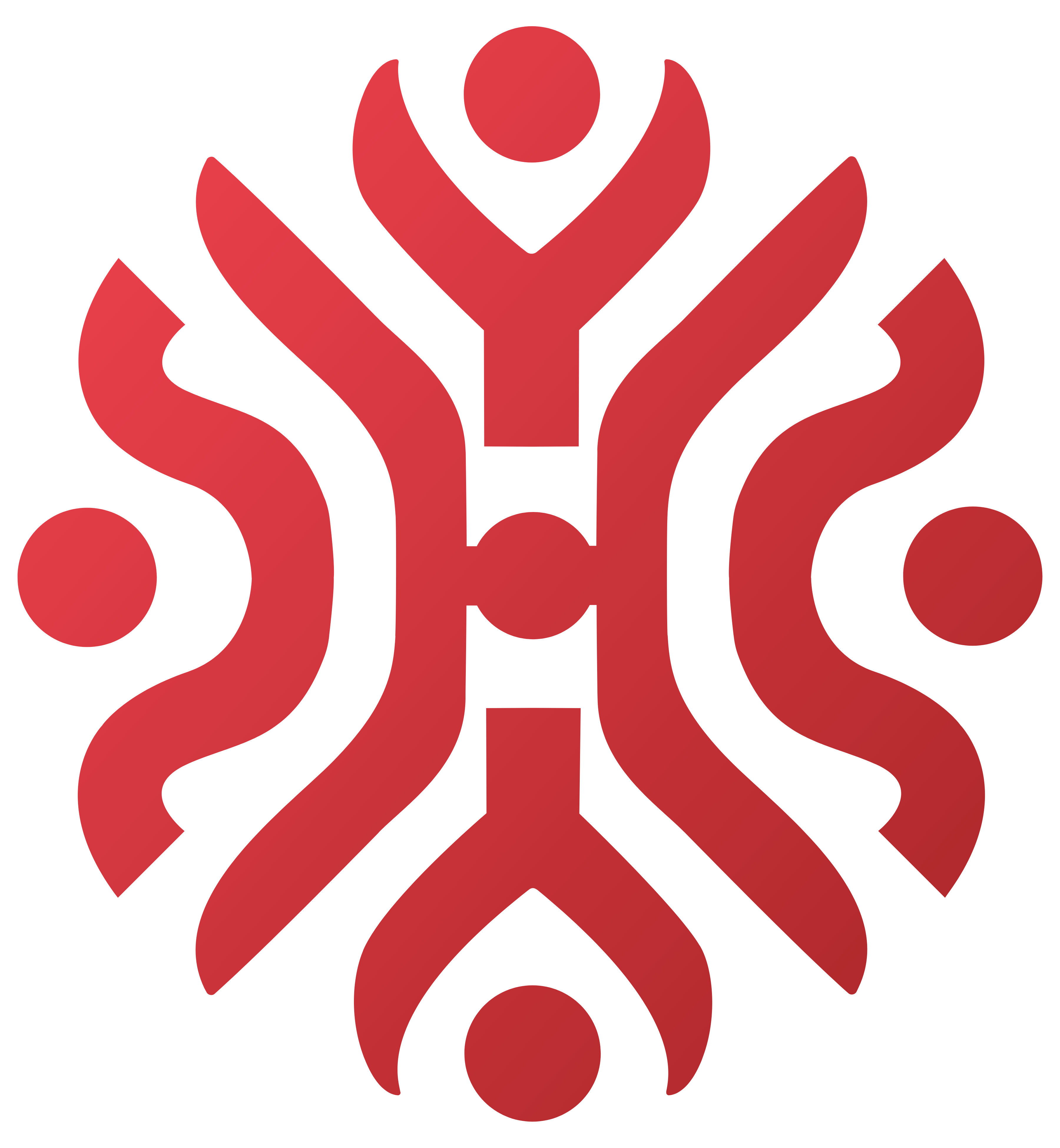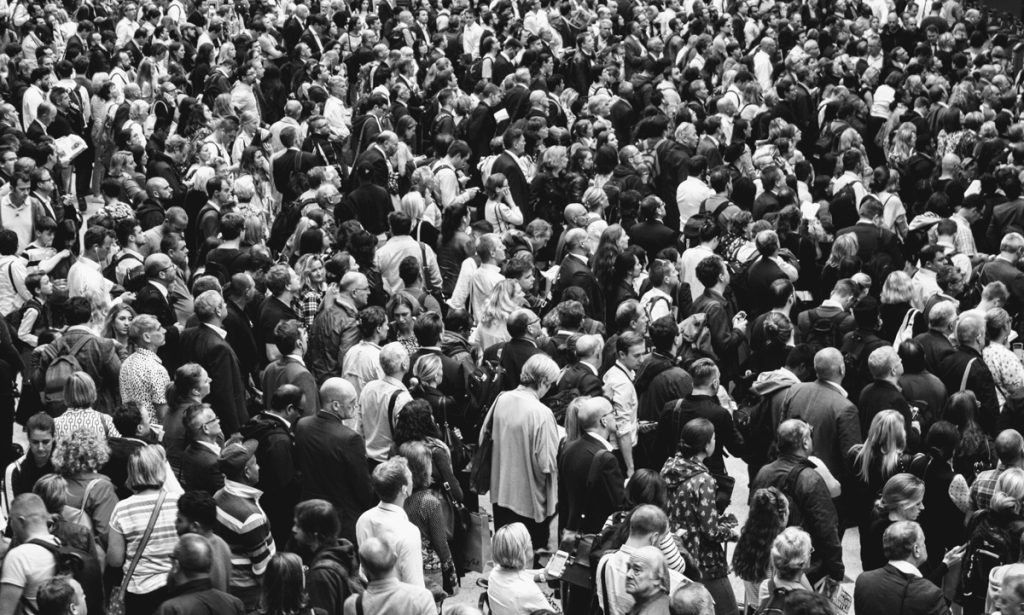spring 2024
In June, Belgians will vote for representatives in regional, national, and European parliaments. Leading the election race is the radical separatist party “Flemish Interest,” which not only advocates for the separation of Flanders but also has the highest number of Kremlin supporters among its representatives.
Marta Barandiy, Vasyl Kushmuns
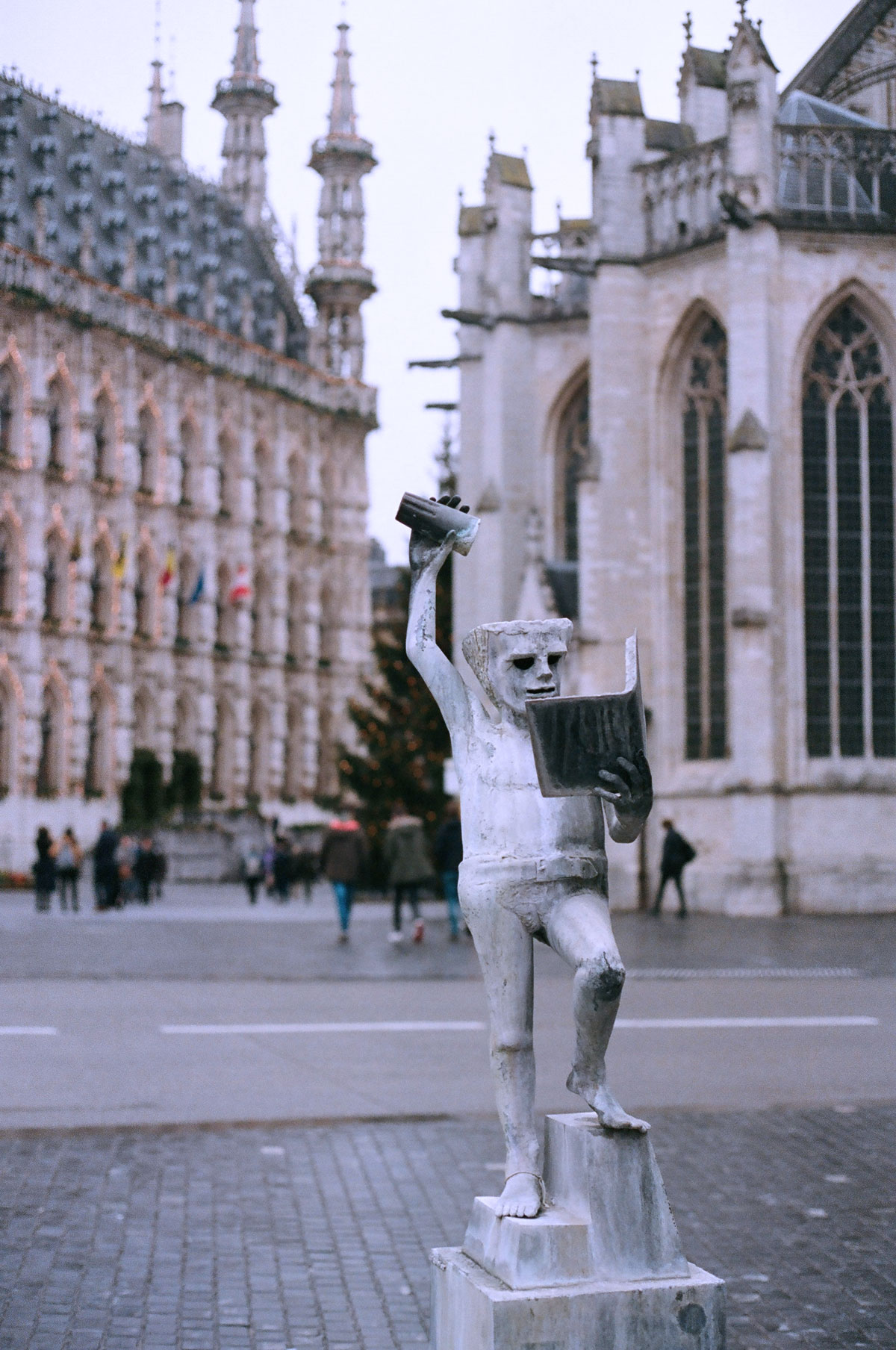
Contents

Vlaams Belang
- Filip Dewinter
- Frank Creyelman
- Jan Penris
- Christian Verougstraete
- Johan Deckmyn
- Gerolf Annemans
- Kris Roman
Nieuw-Vlaamse Alliantie (N-VA)
Nieuw-Vlaamse Alliantie (N-VA) Could Become an Ally to Vlaams Belang
Luc Michel, Jean-Pierre Vandersmissen
The Belgian Workers' Party (PVDA)
- PVDA’s Evasive Stance on the Russian Invasion of Ukraine
- Connections to Russian-Affiliated Organizations
- Propagation of Russian Narratives
There are parties with Russian connections, and others whose policies and decisions serve Russian interests.
The Evolution and Controversial Alliances of Flemish Nationalism. Flemish Interest (Vlaams Belang)
“Flemish Interest” is the rebranding of the party “Vlaams Blok,” which disbanded after a court ruling in 2004 that condemned the party for racism. After reorganizing into “Vlaams Belang,” the party continued the core philosophy of its predecessor, campaigning on a separatist and Flemish nationalist platform.
Like “Vlaams Blok,” “Vlaams Belang” initially enjoyed popularity among the Flemish electorate and was one of the most successful national-populist parties in Europe. However, since 2008, the party experienced a decline in support and membership, coinciding with internal disputes within the party and the rise of the moderate nationalist New Flemish Alliance (Nieuw-Vlaamse Alliantie, N-VA), which also supports the independence of Flanders. Under the current leadership of Tom Van Grieken, Vlaams Belang began to regain popular support and made a comeback during the 2019 federal elections. The attraction to the idea of separating Flanders from Belgium contributed to the support of Putin’s ideas regarding separatism in Ukraine and the annexation of Crimea. Party members attended the so-called referendums in Crimea and the elections in the self-proclaimed Donetsk People’s Republic (DNR), but the support for Russian intervention in the West did not end there.
Filip Dewinter
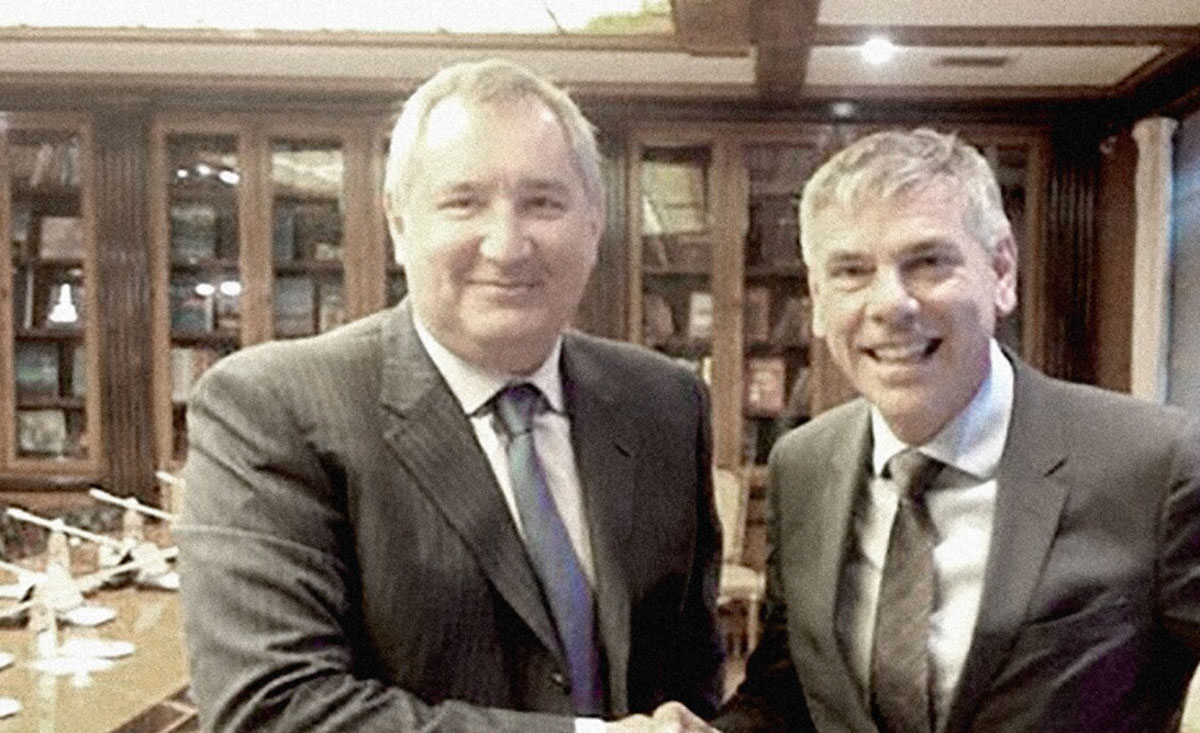
In June 2014, he took a joint photo with then-Russian Deputy Prime Minister Dmitry Rogozin (Source: Humo).
Filip Dewinter is the First Vice President of the Flemish Parliament, a member of the Antwerp City Council, and an observer at Russian elections. He is also a member and former leader of the Flemish Interest party.
Belgian House of Representatives member Filip Dewinter, who had already been an observer at the parliamentary elections in Russia in 2016, noted that the process during the 2018 presidential elections was better organized not only from a technical standpoint but also in terms of organizing auxiliary events. [1, Iz.ru]
In February 2017, he visited the Russian military base Khmeimim in Syria and met with Syrian dictator Assad, calling Russia “the only country providing real assistance to the Syrian people.” [2, Ria.ru]
In 2018, as part of a Belgian delegation, he attended the Yalta International Economic Forum in Crimea, where plans were made to provide 50 million euros in investments for the development of Crimean business. [3, Ridus.ru]
Filip Dewinter also worked on opening a representation of the Autonomous Republic of Crimea in Brussels. According to Belgian MP Filip Dewinter, the representation would help “organize cultural projects,” overcome the “negative agenda surrounding the region,” and allow “European businessmen to implement business projects on the peninsula.” [4, Iz.ru]
In January 2018, he co-authored a resolution to lift sanctions on the Russian Federation, which was submitted to the Belgian Parliament. [5, Gazeta.ru]
In October 2020, commenting on the poisoning of Navalny, he stated that he did not believe the Russian authorities were involved, instead hinting at the involvement of “certain forces” from Western Europe. [6, Rambler.ru ]
Source: Voice of Europe
In March 2022, Filip Dewinter gave an interview to Australian war correspondent Matt Williams, which he published on his own YouTube channel. In this interview, although Filip Dewinter condemned Putin’s actions and called him an aggressor, he opposed strict sanctions against Russia and the supply of weapons to Ukraine. [7, Youtube.com]
Belgian MP Filip Dewinter, representative of the right-wing populist party Vlaams Belang, gave an interview to Voice of Europe in December 2023. [8, Voiceofeurope.com]
The media platform “Voice of Europe” will also be included in the upcoming 14th package of European Union sanctions against Russia. This was announced by European Commission Vice President Věra Jourová. At the end of March 2024, the Czech government included this company in the national sanctions list, as Czech intelligence services believed the platform was attempting to influence European elections. [9, Irozhlas.cz]

In June 2014, he participated in a parliamentary conference in Moscow, funded by the Russian budget and chaired by the then Speaker of the State Duma, Naryshkin. [10, Onderweg.bobgermeys.be]
Frank Creyelman
In March 2014, Frank Creyelman participated in the fake referendum in Crimea, stating that every nation has the right to self-determination, regardless of international law. Along with Luc Michel and Jean-Pierre Vandersmissen, key figures of the National-European Party (Parti Communautaire National-Européen, PCN), who are known for their close ties with Russian politics and their involvement in dubious international election missions. Their actions reflect the overall ideology of the PCN, which supports nationalist and separatist movements, especially when they promote Russian interests.
The PCN and its members, including Frank Creyelman, Luc Michel, and Jean-Pierre Vandersmissen, are based on the ideological desire to create a unified European state stretching from Russia to the Atlantic Ocean. This ideology often includes support for Russian geopolitical interests and anti-Western rhetoric aimed at dividing the European Union and strengthening Russia as the dominant force in Eurasia.
After the “referendum,” Creyelman continued his activities by becoming an “observer” at the so-called elections in the “Donetsk People’s Republic” in November 2014 and again in 2018. Another supporter of the Russian world, Kris Roman, a former member of the Flemish Alliance party, was also present, and we will discuss him separately.

Following the start of Russia’s full-scale military invasion of Ukraine in February 2022, in an interview with the Russian channel Sputnik News, he spoke out against providing weapons to Ukraine, comparing the Russian invasion to NATO bombings of Serbia on social media. He claimed that the war was “partially provoked by foreign forces with geopolitical and financial plans that have no respect for Ukraine” and that the conflict arose due to the “continuous movement of EU and NATO borders eastward.” [11, Sputnikglobe.com]
On his Facebook profile, he publishes articles that partially justify Russia’s armed aggression in Ukraine and agitates against military-technical cooperation between the EU and Ukraine. [12 Facebook.com].
Frank Creyelman, a former member of the far-right Flemish party Vlaams Belang in Belgium, was involved in a significant espionage scandal linked to China. Reports detail how Creyelman was allegedly recruited by Chinese intelligence services to influence European politics in favor of Beijing. This included attempts to sway discussions on sensitive topics such as Hong Kong, the Uyghurs, and Europe’s energy security. His actions were allegedly coordinated through communications with a Chinese intelligence officer named Daniel Wu, who sought to weaken US-EU relations. [13, Politico.eu]
The scandal was uncovered thanks to a joint investigation by leading international media, including Financial Times, Der Spiegel, and Le Monde. The investigation highlighted the case’s complexity and international implications. After the facts were revealed, Vlaams Belang quickly distanced itself from Creyelman and expelled him from the party. [14, Brusselstimes.com]
The Creyelman case also drew attention to his brother, Steven Creyelman, an active member of the same party, who was involved in similar actions. However, Steven claims he was unaware of the espionage context of the discussions initiated by his brother. [15, Brusselstimes.com]
Jan Penris is a member of the Antwerp City Council and a municipal councilor of Antwerp, an observer at the fake elections in the “Donetsk People’s Republic” (DNR). He is a member of the Flemish Interest party.
In March 2014, together with the well-known Frank Creyelman, Luc Michel, and Jean-Pierre Vandersmissen, he illegally visited Crimea during the “referendum,” calling it a “people’s festival” where “everything went correctly.” [16, Blogimages.bloggen.be]
In November 2018, as part of the same group of people, he was present as an “observer” at the “elections” in the “DNR,” claiming that the elections there were going “very well” and that he saw “people believing in their democracy.” [17, Dnr-live.ru]
In February 2019, during a plenary session, he made an obscene remark towards MP Carina Van Cauter, after which he was forced to suspend his political activities and undergo treatment for alcohol dependency. [18, Vrt.be]
On Jan Penris’s Facebook page, there is a Russian-language birthday greeting for Soviet Marshal Zhukov from the “representative of the DNR in Belgium,” along with the aforementioned Kris Roman. [19, Facebook.com]
Christian Verougstraete
Christian Verougstraete is an honorary member of the Flemish Parliament and a former member of the Flemish Interest party.
In March 2014, he illegally visited Crimea during the “referendum” with the already known figures. [20, Exrus.eu]
In November 2018, he was present as an “observer” at the “elections” in the “LNR” (Luhansk People’s Republic). During these elections, Leonid Pasechnik was elected as the leader of the pseudo-republic. [21, Euromaidanpress.com].
As of 2022, he has ceased his political activities.
Johan Deckmyn
Johan Deckmyn was elected as a member of the Flemish Parliament from the East Flanders electoral district in 2019.
He was present at the 2018 Russian presidential elections along with two other Belgians, Philippe Chance Wilmotte (a lawyer) and Gilbert Doctorow, a prominent commentator and analyst on international relations known for his pro-Russian views and active participation in Russian media. Throughout his career, Doctorow has frequently appeared on Russian TV channels such as RT and Vladimir Solovyov’s programs, where he often expressed support for Russian foreign policy, including its actions on the international stage. His critical stance towards US and EU policies, along with calls for tougher measures from Russia, reflects his deep belief in the need to strengthen Russia’s position globally.
Observers from EU countries did not find significant violations in the Russian presidential elections in Astrakhan, said Johan Deckmyn, a representative of the OSCE mission from Belgium, to journalists from the media resource Interfax.ru. “We visited seven polling stations and did not find any serious violations. The overall impression is good. The only thing I didn’t like were the seals at one station. If seals at all stations are made according to standards, here they were plastic,” he said. [22, Interfax-russia.ru]
Gerolf Annemans
Gerolf Annemans is a Member of the European Parliament who did not condemn the annexation of Crimea.
Additionally, in 2017, MEP Gerolf Annemans voted against granting Ukraine visa-free travel [23. Eurointegration.com]. In his speeches, he often references pro-Russian professor Tom Sauer from the University of Antwerp, who frequently publishes in the media and speaks at various conferences. The “professor” considers the situations surrounding Kosovo and Crimea to be identical, accuses the West of Russia’s war against Ukraine, views the Revolution of Dignity as a coup, and uses other Kremlin narratives.
Kris Roman
According to open sources, Kris Roman campaigned for the then-Flemish Bloc (predecessor of the “Flemish Interest” party) in 1988. In 1994, he found this party too moderate and left it. [24, Hetobservatorium.be]

Kris Roman with the so-called “DNR” leader Denis Pushilin. (Source: HLN)
Belgian Kris Roman, originally from Antwerp, has close ties with Russia and calls himself a Russophile. He not only supports Putin’s Nazi policies towards the war in Ukraine but also popularizes them in Europe, particularly in his homeland. [25, YouTube]
Kris Roman started his political career in 1988 by joining the Flemish Bloc party (the predecessor of the current “Flemish Interest” party). However, by 1994, he left the party due to its “excessive moderation.” His open love for Russia began in the 2000s. In 2003, Roman was prosecuted for his anti-Semitic and racist statements and was sentenced to nine months probation. According to the Belgian newspaper DeMorgen, it was after this that Kris Roman first visited Russia with the help of Pavel Tulaev, a far-right neo-pagan activist. Pavel Tulaev, a Russian historian and philosopher, is considered one of the ideologists of the Russian far-right. In his works, he wrote about the “white race,” “white Russia,” and called Russians “modern Aryans.” [26, DeMorgen]

Kris Roman at the pseudo-elections in the unrecognized “DNR” (Source: HLN)
In 2007, after multiple visits to Moscow, Kris Roman decided to open the analytical center “Euro-Rus” with the slogan “For a Great Europe—from Gibraltar to Vladivostok.” Kris Roman has repeatedly stated that he promotes the Axis “Paris – Berlin – Moscow.”
Belgian investigative journalists from the Flemish publication Apache wrote that thanks to his analytical center, Kris Roman managed to build an “impressive neo-Nazi network.” He is called an intermediary between extremist Russian nationalists, who have good relations with members of Putin’s party “United Russia,” as well as Western far-right politicians like Jean-Marie Le Pen, Nick Griffin, and David Duke.

Kris Roman pose avec des représentants de la N-VA, comme Theo Francken ou Zuhal Demir. Twitter/X
The pro-Russian analytical center was closed in mid-2021. However, it is interesting that during its operation, one of the founders was Geert Verekem, a member of the “New Flemish Alliance” party and Russian citizen Svetlana Astachkina. The political force has a nationalist ideology and advocates for the split of Belgium, specifically the separation of Flanders.
Kris Roman’s ties with Russia do not end there. In 2018, after the start of the war in Ukraine, he went to the so-called elections in the so-called “DNR” as an “international observer.” The Belgian claimed that the occupied territories had “open and transparent” elections, which, in his opinion, were lacking in the European Union. For such merits, he received the position of representative center of the so-called “Donetsk People’s Republic” in Belgium.
After the full-scale invasion of Ukraine, he continued his visits to Russia. In April 2022, he even considered moving to the aggressor country. The reason for such thoughts was allegedly the danger for Russophiles in Europe, and Ukrainian refugees, whom Roman called “nationalists,” could only worsen the situation. [27, Ura News]
“I expect that a couple of million Ukrainians will soon come to Belgium, but not real ones, but propagandists. They will be like the Albanian mafia. And there may be conflicts. They will continue anti-Russian propaganda, but already from Europe. Europe has long been like the Titanic, but it will soon sink even faster,” Roman told Russian media.
Currently, the Belgian actively supports the Russian army and even attended a rally concert at the “Luzhniki” stadium, where the occupiers and the war were praised. According to the DeMorgen newspaper, Kris Roman continues to maintain contact with Flemish far-right youth organizations and tries to sell his pro-Russian views to emerging Francophone far-right groups.
There are parties with Russian connections, and others whose policies and decisions serve Russian interests.
Nieuw-Vlaamse Alliantie (N-VA) Could Become an Ally to Vlaams Belang

Currently, the nationalist party New Flemish Alliance – Nieuw-Vlaamse Alliantie (N-VA) is the largest political force by the number of seats in the Chamber of Representatives, the Senate, and the Flemish Parliament. The party has three deputies in the European Parliament and another three representatives in the Brussels Parliament.
The party’s ideology is based on moderate conservatism and Flemish nationalism, aiming for the separation of Flanders from Belgium. The party leader, Bart De Wever, who is also the mayor of Antwerp, has stated that he “never abandoned the dream that all Dutch-speaking people would live together” and proposed merging Flanders with the Netherlands [28, Eurointegration]. Euronews reports that the “New Flemish Alliance” and “Flemish Interest” might unite after the elections in the Flemish Parliament. [29, Euronews]
Before the full-scale invasion, the leader of the “New Flemish Alliance,” Bart De Wever, visited Russia. In particular, in 2020, he met with the governor of St. Petersburg, Alexander Beglov, and signed a bilateral agreement [30, 78.ru] on socio-economic, scientific-technical, humanitarian, and cultural cooperation. However, after the full-scale invasion, he called Putin a “psychopath” and “crazy.” [31, Brussels Times]

Source: Facebook
Additionally, one of the party members, Geert Verekem, is a co-founder of the “Euro-Rus” analytical center along with “Russophile” Kris Roman. On February 24, 2022, at the start of the full-scale war against Ukraine, Verekem posted a photo on his Facebook page with the caption “Together we are invincible,” hinting at support for the Russian army. [32, 7sur7]
Luc Michel and the National-European Community Party (Parti Communautaire National-Européen, PCN)
The National-European Community Party (PCN), founded in 1984 by Luc Michel in Belgium, exemplifies a national-Bolshevik micro-organization striving to create a unified European state stretching from Russia to the Atlantic. This party is known for its close ties with Russia and active participation in international political events that promote Russian interests.
Ideological Foundation and Political Ties
Although the PCN has not gained significant influence in Belgium or France’s domestic political arena, it has found its place in ideological and geopolitical campaigns oriented towards Russia. Luc Michel, the party’s founder and leader, is renowned for his pro-Russian views and active participation in monitoring referendums and elections that Russia uses to legitimize its actions on the international stage, notably in Crimea.
Collaboration with Russian Organizations
Luc Michel closely collaborated with the Russian youth movement “Nashi” and visited their camps, such as Seliger, where he supported the Kremlin’s political initiatives. This highlights his role in cultural and ideological exchanges aimed at supporting Russian foreign policy.
Legitimizing Russian Actions
One of Michel’s most significant roles was monitoring the fake referendums in Crimea. Russian state media presented him as an OSCE observer despite the organization not participating in this process. This became part of a broader Russian strategy to use Western “puppets” to legitimize its political actions.

Internet Network “Russosphère”
Michel also heads “Russosphère,” a propaganda network active on social media aimed at defending Russian interests. This network was launched before the full-scale Russian invasion of Ukraine and quickly gained popularity, amassing thousands of subscribers. It operates to defend Russian interests on social media platforms under sanctions and is used to spread disinformation.
Concluding Remarks
The activities of the National-European Community Party and its leader, Luc Michel, distinctly demonstrate the blending of political ideology with geopolitical ambitions. While the party may appear marginal on the domestic front, its international activities and ties with Russia play a significant role in aiding the Russian government and maintaining its influence in Europe.
Jean-Pierre Vandersmissen: Co-founder and Activities
Jean-Pierre Vandersmissen is a key figure in the context of the National-European Community Party’s ties with Russia through his role in the Eurasian Observatory for Democracy and Elections (EODE). The EODE is one of the organizations involved in legitimizing dubious electoral and referendum processes organized or supported by Russia, particularly in disputed territories like Crimea and regions in eastern Ukraine.
Role in the Eurasian Observatory
As a co-founder of EODE, Vandersmissen is involved in organizing observation missions often funded by Russian sources. These missions typically aim to support narratives favorable to Russia, asserting the “transparency” and “democracy” of electoral processes that the international community often views as fabricated or unfair.
Collaboration with Neo-Nazi Elements
Vandersmissen’s connections with neo-Nazi figures, such as Jean-François Thiriart, further underscore the extremist ideological basis of his activities. This also demonstrates the blending of radical right-wing extremism with pro-Russian geopolitical strategy, creating dubious alliances on the international stage.
Overall Impact
The activities of figures like Luc Michel and Jean-Pierre Vandersmissen within the National-European Community Party illustrate how marginal political groups can exploit international crises and conflicts to strengthen and spread their ideologies. Their actions assist Russia in maintaining its international influence and attempting to destabilize the political landscape beyond its borders.
The Belgian Workers’ Party’s Controversial Russian Connections
The Belgian Workers’ Party, known as Partij van de Arbeid van België (PVDA) (French: Parti du Travail de Belgique, PTB), has often portrayed itself as a champion of the working class, standing firm against market capitalism and advocating for socialist ideals. However, recent investigations reveal troubling connections between PVDA and Russian interests that demand the attention of Flemish voters. This article delves into the evidence of PVDA’s affiliations and its concerning stance on critical international issues.
The Workers’ Party of Belgium is an ultra-left, Marxist, and socialist political party in Belgium. It is the only Belgian party represented in parliament that is a fully national party. The party abstained from voting on the condemnation of the Russian invasion of Ukraine in the House of Representatives in 2022.
In its socio-economic program, PVDA often nostalgically returns to Soviet communism, emphasizing respect for the working class and rejection of market capitalism.
Information
Rudi Kennes is PVDA’s leading candidate for the upcoming European Parliament elections. He was one of the leading union representatives at the former Opel/GM plant in Antwerp and served on the local council of Willebroek.
PVDA’s Evasive Stance on the Russian Invasion of Ukraine
One of the most glaring indications of PVDA’s problematic alignment is its position regarding Russia’s invasion of Ukraine. Despite the official party line condemning the invasion and criticizing Putin’s regime, PVDA has repeatedly abstained or voted against measures supporting Ukraine in various parliaments. For instance, during a plenary session in the Flemish Parliament on February 24, 2022, PVDA member Kim De Witte criticized Western and NATO support for Ukraine, even citing John Mearsheimer, a professor known for his pro-Russian narratives.
Moreover, in September 2023, PVDA representative Nabil Boukili opposed supplying F-16 fighters to Ukraine, a stance that aligns with Russian propaganda narratives about the West’s involvement in the conflict.

Francis Wurtz and Marc Botenga. Facebook
Connections to Russian-Affiliated Organizations
PVDA’s connections extend beyond parliamentary votes. In 2019, Marc Botenga, a PVDA representative in the European Parliament, met with the French Communist Party, including Francis Wurtz, an active participant in events organized by the Russian-affiliated “Society of Friends of L’Humanité”. Such meetings suggest an ideological and potentially operational alignment with Russian interests.
Further evidence of collaboration surfaced in February 2023, when PVDA leaders met with Maksym Gol’darb, the head of the banned Ukrainian party “Union of Left Forces – For a New Socialism.” This meeting in Brussels resulted in an agreement to cooperate and further the aims of the international initiative “Europe for Peace,” co-organized by PVDA. The involvement of a Ukrainian figure, under suspicion by the SBU (Security Service of Ukraine), underscores the extent of PVDA’s controversial associations.
Propagation of Russian Narratives
PVDA’s rhetoric often mirrors Russian propaganda, particularly regarding NATO and the impact of sanctions on Europe. Jos D’Haese, leader of PVDA in the Flemish Parliament, has publicly stated that anti-Russian sanctions harm the global working class, a talking point frequently echoed by Russian state media.
Additionally, PVDA’s positions are regularly featured on Russian propaganda platforms. References to the party and its members appear on channels like Soloviev Live and Alexey Pushkov’s Telegram channel, reinforcing the narrative that PVDA serves as a mouthpiece for Russian interests in Belgium.
Afterwords
The examination of Vlaams Belang and the Workers’ Party of Belgium (PVDA) reveals significant concerns about their alignment with foreign interests, particularly Russian. Vlaams Belang, emerging from the controversial Vlaams Blok, has maintained its nationalist agenda while showing a troubling pattern of support for Russian actions, including the annexation of Crimea and the invasion of Ukraine. Prominent members like Filip Dewinter and Frank Creyelman have participated in pro-Russian activities, further highlighting the party’s contentious international stance.
Similarly, PVDA’s abstentions on key votes condemning Russia’s invasion of Ukraine and its connections with Russian-affiliated organizations raise alarms. The party’s rhetoric often mirrors Russian propaganda, undermining the integrity of Belgian politics. Leaders such as Marc Botenga and Jos D’Haese have engaged in activities that align with Russian interests, casting doubt on the party’s commitment to Belgian sovereignty.
For Flemish voters, these revelations underscore the importance of scrutinizing political affiliations and the potential influence of foreign agendas. Both Vlaams Belang and PVDA present themselves as champions of local and working-class interests, yet their actions suggest a susceptibility to external influences that could compromise national integrity. As the political landscape evolves, vigilance and informed decision-making are crucial to preserving Belgium’s democratic values and sovereignty.
There are some parties that have Russian connections, there are representatives of other parties that have served Russian interests with their policies and decisions. Thus, Belgian Prime Minister Alexander De Croo (OpenVLD) was one of the last ones who visited Ukraine after the full-scale invasion in November 2022. The Belgian Minister of Foreign Affairs Hadja Lahbib (MR) illegally visited Crimea six months before the full-scale invasion as a journalist, and despite this fact, has still been appointed as an MFA. Petra De Sutter (Groen), as a Belgian representative in PACE, recommended returning Russia to the Council of Europe in 2019 and serves now as Vice Prime Minister.
Today, there are around 100 Russian “diplomats” walking around Brussels. Russian nationals work in Euroclear, the institution responsible for the Russian frozen assets. Russian businesses such as Lukoil still feel comfortable here. Russian LNG finds its way to the whole world through the Belgian port of Zeebrugge.
Appeasement policy before the full-scale invasion, as well as Insufficient and delayed support to Ukraine now, costs Ukraine’s lives and Europe’s security.
Dear Flemish voters, your defense is at stake now!
Choose wisely!
Marta Barandiy, Vasyl Kushmuns
References:
- Iz.ru (19 березня 2018 року). Наблюдателям дали полную свободу
- Ria.ru (7 лютого 2017). Бельгийский депутат убедился в лживости западных СМИ после поездки в Сирию
- Ridus.ru (13 березня 2018). Бельгийские бизнесмены вложат в Крым 50 миллионов евро назло Брюсселю
- Iz.ru (13 листопада 2018). В Брюсселе откроется представительство Крыма
- Gazeta.ru (29 січня 2018). В парламент Бельгии внесли резолюцию о снятии санкций с России
- Rambler.ru (6 жовтня 2020). Эксперт: За историей с Навальным действительно стоят какие-то силы
- Youtube.com (March 13, 2022). Russian Aggression & Immigration Uncensored Interview with Right Wing EU Minister – Filip Dewinter
- Voiceofeurope.com (11 вересня 2023). Если мы не сможем остановить массовую иммиграцию, это будет конец европейской цивилизации — Эксклюзивное интервью с депутатом бельгийского парламента Филипом Девинтером
- Irozhlas.cz (April 5, 2024). Nástroj putinovské propagandy.‘ Voice of Europe podle Jourové skončí na unijním sankčním seznamu
- Onderweg.bobgermeys.be Analyse – De innige relatie tussen Poetin en Vlaams Belang – Deel 2
- Sputnikglobe.com (February 27, 2022). How EU Turns Its Peace Budget Into War Chest to Provide Lethal Arms to Ukraine
- Facebook.com (March 1, 2022). DE ENIGE WINNAARS IN EEN OORLOG ZIJN ZIJ DIE NIET MEEDOEN
- Politico.eu (December 15, 2023). Belgian far-right expels alleged China spy from party
- Brusselstimes.com (December 21, 2023). Minister calls for urgent reform to clamp down on spying as leaks reveal Chinese influence
- Brusselstimes.com (January 12, 2024). Suspected Vlaams Belang-China spy tried to influence his younger brother MP
- Blogimages.bloggen.be (March 18, 2014). Er vallen lessen te trekken uit referendum
- Dnr-live.ru (11 листопада 2918). Заявления международных наблюдателей о выборах в ДНР
- Vrt.be (22 лютого 2019). Vlaams Belanger Jan Penris trekt zich tijdelijk terug uit politiek na beledigingen in Kamer
- Facebook.com (2 грудня 2021). 1 декабря 1896 года родился Георгий Константинович Жуков
- Exrus.eu Длинная рука Москвы
- Euromaidanpress.com (November 16, 2018). Far-right and left, conspiracy theorists among “foreign monitors” at Russia’s sham Donbas elections: Report
- Interfax-russia.ru (4 березня 2012). Европейские наблюдатели отмечают, что выборы в Астрахани проходят без серьезных нарушений
- Eurointegration.com (7 квітня 2017). Кто голосовал против украинского безвиза? Полный список
- Hetobservatorium.be (February 27, 2022). Kris Roman, een 21ste eeuwse pro-Russische Cyriel Verschaeve
- YouTube. Крис Роман интервью с Виолеттой Можар
- DeMorgen. Hij is een van Poetins grootste fans in België en haalt regelmatig het Russische nieuws: wie is Kris Roman?
- Ura News
- Eurointegration. Мэр Антверпена предложил присоединить бельгийский регион к Нидерландам
- Euronews. Бельгийскую предвыборную гонку возглавляют крайне-правые евроскептики
- 78.ru Петербург подписал договор о сотрудничестве с Антверпеном
- Brussels Times. ‘Putin is a psychopath’: War in Ukraine will not end soon, De Wever warns
- 7sur7 La maison d’un fan belge de Poutine réduite en cendres à Moscou: “C’est l’œuvre d’agents étrangers”
- Partij van de Arbeid van België (PVDA) websites: www.ptb.be; www.pvda.be; international.pvda-ptb.be
- Waarom de PVDA al meer dan 20 jaar tegen Poetin is
- Peoples Dispatch. Progressives in Europe call for ceasefire in Ukraine
- Nabil Boukili. Facebook Post
- PCF Bas-Rhin, Facebook Post with picture: from 19 December 2019. Picture of Francis Wurtz and Marc Botenga
- Юманите. Дипломатия – для решения проблемы, а не для её создания
- Итоги работы движения «За новый социализм» за февраль 2023 года
- Post in the Soloviev’s Telegram Channel
- Post in Alexey Pushkov’s Telegram Channel
- Khpg.org (March 16, 2016). Myth, ’observers’ & victims of Russia’s fake Crimean referendum
- Anton-shekhovtsov.blogspot.com (November 1, 2014). Fake monitors “observe” fake elections in the Donbass
- Bbc.com (1 лютого 2023). За Африку и Путина: обнаружена новая пророссийская и антифранцузская кампания в соцсетях


